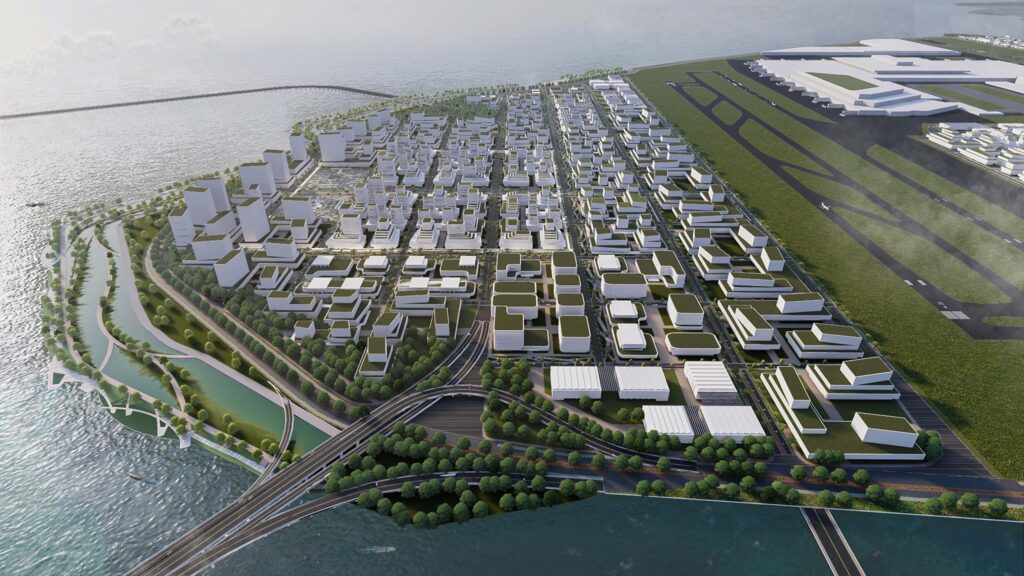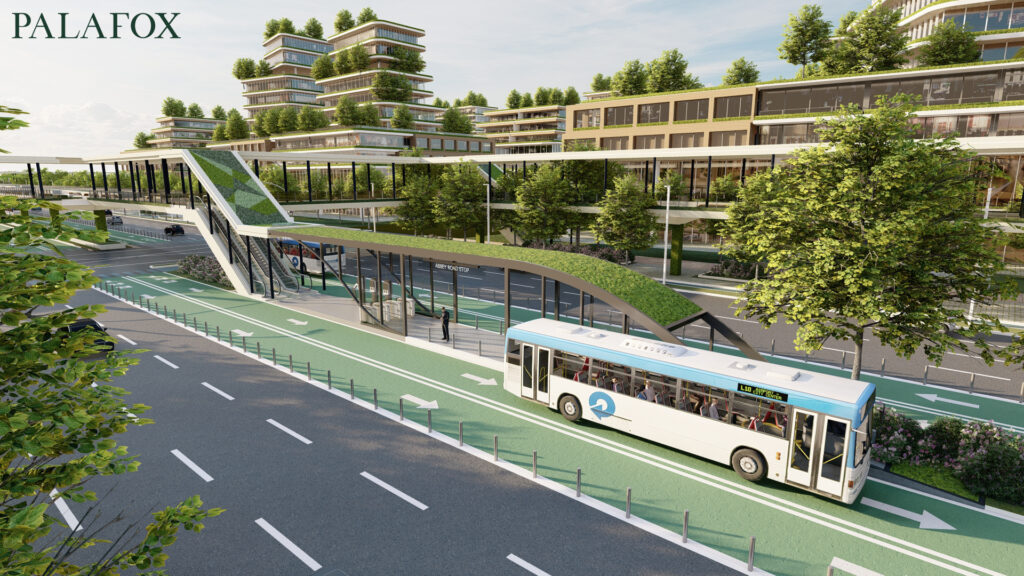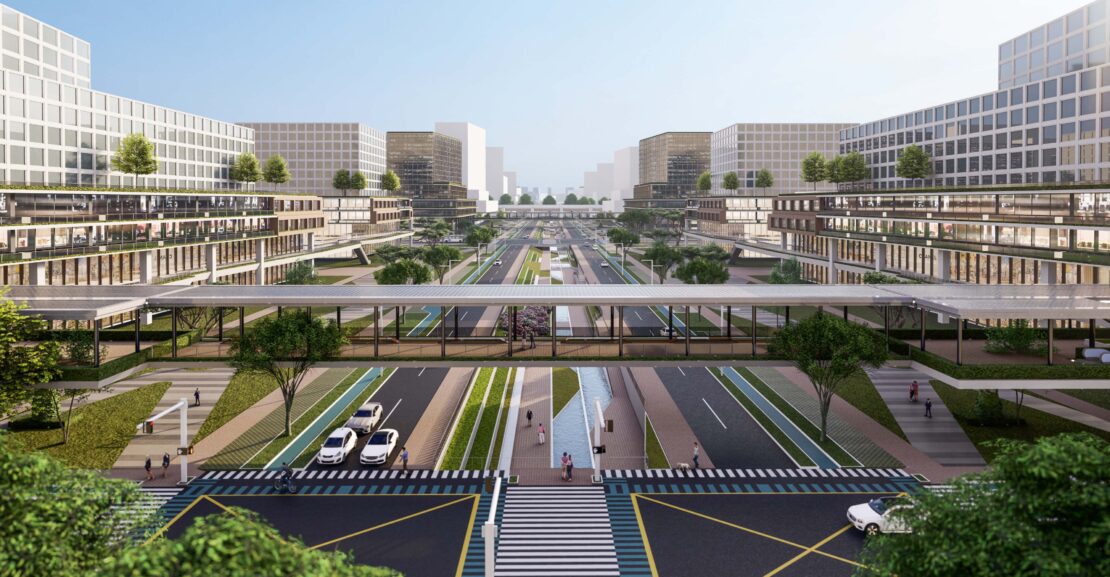San Miguel Corporation (SMC) has released a conceptual master plan for its massive, green-designed, and future-ready aerocity development in Bulacan province, envisioned as the “pace-setter” and model for green urbanism in the country.
The project is seen as a major boost to both national and local economies as it will complement SMC’s P740-billion New Manila International Airport (NMIA) project.
SMC President and Chief Executive Officer Ramon S. Ang said that the designs, prepared by top architecture firm Palafox Associates, reflect the vision of a modern Philippine city that provides built-in solutions to various socio-economic, environmental, and climate issues, and correct the mistakes seen in many urban developments of Metro Manila.

SMC tapped the firm, headed by the country’s top urban planner and green architect, Felino “Jun” Palafox Jr., to masterplan the airport-driven city concept.
“These designs presented to us by Arch. Palafox and his team will be close to actual. There will probably be some adjustments by the time we implement, and we will still continue to improve as needed, but in terms of the overall concept, design, and the features, this is it,” SMC president and chief executive officer Ramon S. Ang said.
“It’s very fortunate that when we sat down with Architect Jun Palafox for this project, we had the same vision that the airport and aerocity projects should be sustainably built, geared towards the future, and address social and environmental concerns that have beset our existing cities, including the country’s major financial districts. With Architect Palafox’s help, all of this can be done,” he added.
Ang underscored that the Aerocity development addresses many of the problems experienced in Metro Manila today. It is designed and will be built, with sustainability in mind. It will be properly zoned, with areas dedicated to agriculture and food production, logistics, health and wellness, aeronautics, finance, science and technology, commerce, residences, education, tourism, entertainment, recreation, and government among others. It will utilize renewable energy, and will accommodate both traditional and alternative modes of transportation, as well as promote active and healthier lifestyles, he added.

The airport city design will adopt green architectural and green urbanism guidelines over and above the country’s building and zoning codes, and follow structural codes of other countries similarly situated in earthquake zones like the Philippines.
The Aerocity project will have ample open spaces and utilize the latest in digital infrastructure. It will also feature easily accessible public transport systems, including mass transit systems, and bicycle highways, as well as a waterfront area with landscaped walkways and promenades.
Ang said SMC is fully committed to completing the massive projects, which it will fully fund with no guarantees or subsidies from the government, to help boost the country’s post-pandemic economy and improve the lives of more Filipinos by boosting various industries and creating millions of quality jobs nationwide.
SMC’s 2,500-hectare NMIA project will initially feature four parallel runways, a world-class terminal, and a modern and interlinked infrastructure network that includes expressways and railways.
“While we need to fast-track the completion of this airport and aerocity to help ease travel congestion and aid in the country’s recovery with more jobs and opportunities for more Filipinos, we are mindful that we need to do this the right way and with a vision for a sustainable future. That is why we tapped Architect Palafox for this project,” he added.
In his decades of experience as an urban planner, Palafox has advocated and implemented some 1,700 projects that integrate the best practices in green, sustainable, and disaster-resilient architecture in about 45 countries worldwide.
Palafox earlier pointed out that that country needs 100 new cities by the year 2050 and he agreed to take on the Bulacan Aerocity development to present it as a model and pacesetter for future green and sustainable cities.
Prior to actual development, the company has committed to restore and rehabilitate the existing mangrove forest cover at the Bulakan coastal areas by planting some 190,000 mangroves, develop and enhance natural habitats of marine and bird species, and clean the rivers surrounding the airport project to help mitigate perennial flooding in the province.

